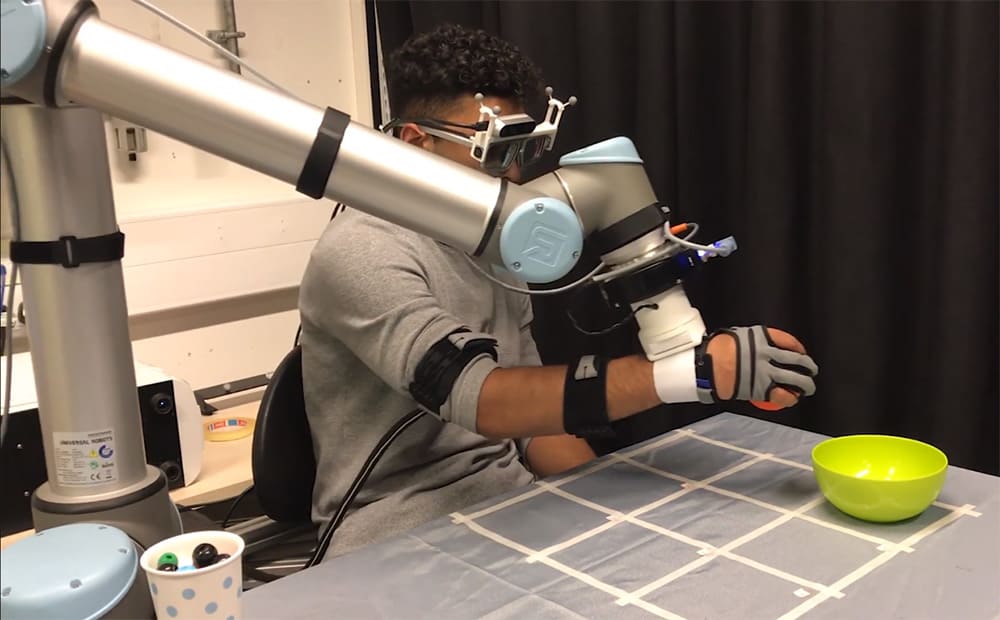Volunteers with DMD required to take part in vital research

A non-invasive robotic support developed by researchers at Imperial College London which could help disabled people reach and grip with their own arms is looking for volunteers with Duchenne muscular dystrophy (DMD) to take part in a study.
The system has the potential to revolutionise reaching and grasping for people with paralysis, in particular for individuals with DMD.
Researchers from the Imperial College London Department of Bioengineering and Computing created the innovative human-robot interface, which relies on the user’s eye gaze. According to the university, users can learn to control the robotic support in a matter of minutes.
Now, the researchers are looking for 25 volunteers with both reaching and grasping paralysis, above the age of 18, to take part in a study for technical evaluation of the system.
The volunteers should not have rigidity within the muscles/joints in the arm which would lead to discomfort if their arm/grip is actuated.
Volunteers will be asked to visit the university’s South Kensington Campus and to put on eye-glasses. They will also be asked to wear a soft robotic glove for grasping assistance, and a magnetic arm attachment on their wrist, which will couple their arm with the robotic arm in the lab.
The university will also ask participants to control the robotic system with their gaze, initially in free mode, to get to know the system and get used to its behaviour, and then in specific pre-defined tasks for systematic evaluation of the setup.
Participation will involve one session lasting approximately two hours and participants will be paid £10 per hour for undertaking the study.
To find out more information about this study, or to volunteer, email Ali Shafti at a.shafti@imperial.ac.uk
Watch the robotic system in action in the video below:

